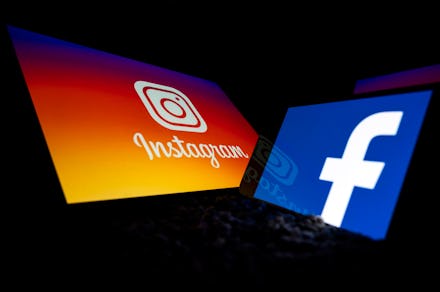Facebook finally gets around to banning anti-vaccine, Holocaust denial content

Facebook is finally starting to clean up its act, or at least the content that appears on its platforms. On Tuesday, the company announced that it will ban advertisements that "discourage people from getting a vaccine." The change in policy comes just 24 hours after Facebook reversed one of its more controversial positions and decided to ban Holocaust denial content across its properties.
In addition to preventing anyone from running anti-vaccine advertisements, Facebook said it will launch its own awareness campaign with the goal of getting people vaccinated. That includes a new flu vaccine information campaign and efforts with global health partners to "increase immunization rates."
You aren't alone if much of this sounds familiar to you. Facebook has been tinkering around the edges on these issues for years now. In 2019, the company announced that it would address the growing presence of anti-vaccine content. At the time, the company promised to "reduce the rankings" of groups and pages that promote misinformation about vaccines and remove them from search results. The company also promised that it would reject any advertisements that contain misinformation about vaccines. And yet, here we are a year later and Facebook is once again promising to do the thing that it was already supposed to be doing.
Perhaps that is because Facebook's prior efforts seem to have failed, and the stakes have only been raised. A study published earlier this year found that anti-vaccine pages on Facebook are more numerous, faster growing, and more effective in converting people than their pro-vaccine counterparts. This problem has been exacerbated by the coronavirus pandemic, which has led to medical misinformation running wild across Facebook and other social media platforms. Of course, the problem has been made worse by the fact that the President of the United States happens to be one of the most high-profile and prolific spreaders of misinformation, but Facebook has failed to adequately address Trump's lies, too.
Similar to the retreading of the anti-vax crackdown, Facebook's decision to ban Holocaust denial may also feel like deja vu. Back in August, the company cracked down on anti-Semitic stereotypes as part of an update to its hate speech policy. It also instituted policies to remove white supremacist content back in 2019. But the company has held firm in allowing people to deny the existence of the Holocaust through all of that. That's largely thanks to the public stance of company CEO Mark Zuckerberg, who in 2018 declared that Facebook wouldn't moderate Holocaust denial content because, “At the end of the day, I don’t believe that our platform should take that down because I think there are things that different people get wrong. I don’t think that they’re intentionally getting it wrong."
In announcing the change in policy, Facebook cited a survey that found nearly one-quarter of people under the age of 39 believe the Holocaust was a myth or was exaggerated. Another 12 percent had never heard of it. The company found those figures to be unacceptable. What Facebook doesn't mention is the same survey found that half of those people came across Holocaust denial or distortion posts on social media. Facebook is happy to position itself as savior when it gets around to addressing this content. It's less forthcoming about its own role in perpetuating these views.